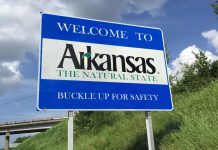Tribal nations across California are pouring millions of dollars to both defeat Proposition 27 but also generate support for Proposition 26. A recent report by PlayCA projected $106 million in spending solely on promoting Prop 26.
Given the billions of dollars at stake for online sportsbook operators if they can get into California, it is predictable they would spend nine figures to try and secure that market. At first glance, a retail-only tribal betting bill seems to offer significantly less revenue. So why are tribes willing to spend so much on getting the measure through? The answer is because Prop 26 is about more than just sports betting.
California retail betting would generate much less revenue and handle
Protectionism is certainly part of the equation. The bill specifically does not include online betting though, which limits how big the California sports betting industry could really get. Even in Nevada, retail betting comprises just a third of all betting activity. In states with online sports betting, the percentage of in-person bets is regularly less than 5%.
Mississippi, which legalized retail-only sports betting shortly after the PASPA repeal in 2018, generated $586 million in handle in 2021, which is a substantial sum of money, especially when you consider the state consists of 3 million people compared to California’s almost 40 million. On the other end of the spectrum, New York and its 20 million residents, have generated more than $1 billion in online betting handle in all but one month since launching.
What is getting less attention is how Prop 26 does more than just legalize in-person betting at racetracks and tribal casinos. It also changes the scope of what kinds of games tribal casinos can offer.
Prop 26 would greenlight tribal roulette and craps
The table games currently offered at tribal casinos are limited in scope to games involving cards, like blackjack and Pai Gow. Games with dice and roulette are not allowed. Properties do offer “California Craps” and “California Roulette”, but both of these versions are more complicated than the original and replace the dice and numbers with playing cards. These versions are a serviceable workaround but pale in comparison to the Vegas-style versions of the game.
That could change if Prop 26 passes. In addition to greenlighting betting, the voter referendum would also expand the scope of the games tribal casinos could offer. Namely, it would specifically allow for “dice games” and “roulette”. The state’s tribal compacts would need to be updated before they would be able to offer these games, but that would be the only hurdle before these popular games hit the floor.
As operators in any state with legalized online casino will tell you, sports betting makes the headlines while online casino makes the money.
What may seem short-sighted as it pertains to sports betting would be a massive coup for the casino properties. Particularly when you consider the continued battles between California card rooms and tribal operators. It also helps to explain why a consortium of card rooms filed suit against Prop 22 to attempt to keep it off the ballot.
Card rooms are keen to get in on sports betting too, but widening the gap between what tribal casinos can offer compared to card rooms is the bigger battle to wage.
“What this sports-wagering ballot initiative really does is to surreptitiously destroy competition with California’s cardrooms by granting more rights to Tribal casinos, including the right to file a stream of lawsuits against card rooms,” said Deven Kumar, General Manager of Hollywood Park, when the measure gained enough signatures earlier this year. “This is not what the initiative process was designed to do, and certainly not what this initiative is advertised to do.”
California card rooms irked tribal properties by offering player-banked versions of table games that skirted rules around no house-banked games at their properties.
The California Supreme Court declined to hear the motion for an injunction when the suit was filed. In turn, Proposition 26 made the ballot for the fall. Since then, groups have taken stances against Prop 26.
The City of San Jose, which is home to card rooms Bay 101 and Casino M8trix, voted unanimously to oppose both Prop 26 and Prop 27. The two card rooms contribute roughly $15 million to the city in taxes annually.
Arizona tribes made a similar concession on sports betting
A similar situation arose in Arizona when the state was considering legalizing sports betting. Many critics did not understand why tribes allowed so many other groups to be part of the licensing process. Additionally, the number of licenses available to the tribes would inevitably leave some on the outside looking in.
However, as part of the deal, Arizona also granted tribal casinos the ability to expand the casino floor to include more slot machines and sanctioned a new Phoenix-area tribal casino.
Moreover, the deal included the expansion of table games beyond just card-based games. Craps, Sic Bo, and Baccarat hit the gaming floor and immediately made an impact on the bottom line. In the first quarter of FY2021-22 tribes contributed $40 million to state revenue, a remarkable 192% increase from the previous year.














